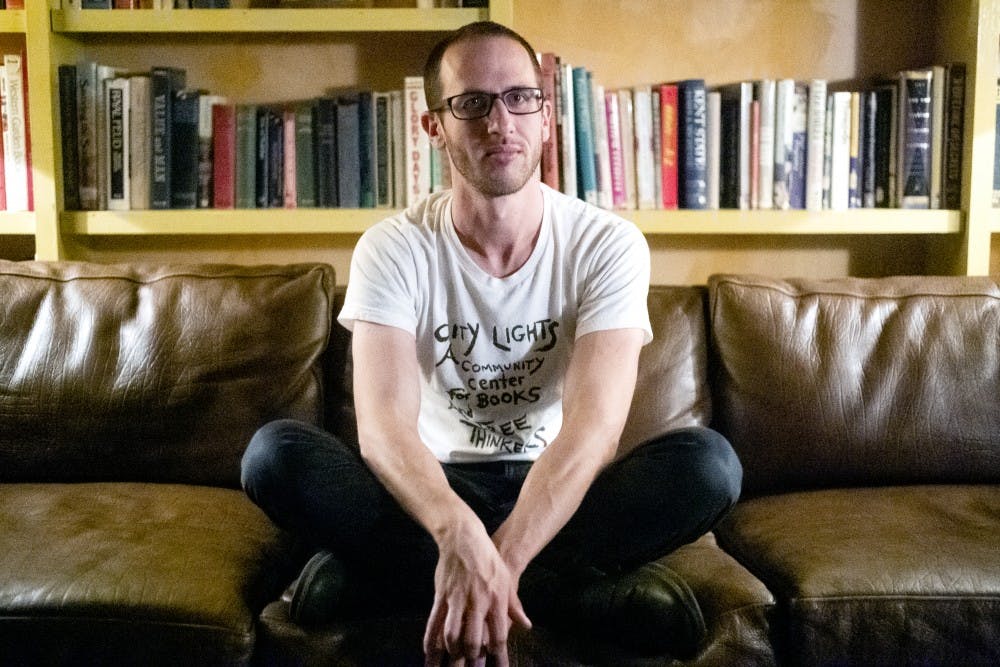Through an alley, down a staircase and into a dimly lit room smelling of old books and mildew, 14 people gathered in a modern version of a 17th-century salon to discuss any and all things literature.
Every first Thursday of the month, people from different backgrounds gather in an old room in Valley Bar to attend "Get Lit," a literary event designed to resemble salons of the 17th-century. With adult beverages in hand, people of different ages, races and genders sit down for an hour to discuss literature and life.
Get Lit started five years ago but has been taken over and restructured by ASU’s Virginia G. Piper Center for Creative Writing in the past two months, according to Jake Friedman, marketing and outreach specialist at the Piper Center, who has been a moderator for five years.
The literary project was previously run by Four Chambers Press, a small press and grassroots community organization founded by Friedman that dissolved during the summer of 2019.
Focusing on a 'true salon feel'
The program was previously hosted by ASU lecturer Rosemarie Dombrowski, who stepped down from her position as a permanent host in January. After she stepped down, Friedman decided to find guest hosts to expand the conversations.
Friedman has been Get Lit's sole moderator for five years now, a position that ensures everyone gets a chance to participate in a space that is creative and intellectual yet feels like a “house party." Ultimately, however, he said he hopes to find a group of 6-12 volunteers who can moderate, find hosts and reach out to the community.
Even though he wants to prevent it from becoming too structured and straying from the "true salon feel," Friedman said that he was excited that the Piper Center was able to support Get Lit, allowing the project to continue in the long run.
"Now it gets to exist, ideally, as long as the institution, which I think is the dream of an institution in the first place," Friedman said. "To create something that exists outside of us, that is larger than ourselves, that is objective, that can be maintained and enjoyed in generations to come."
The topic discussed on Get Lit's Oct. 3 event was, "Whose Gaze is it, Anyways?" and centered around American author Toni Morrison and race in literature influenced by "the white gaze."
The host was Rogelio Juárez, a Phoenix-based writer and attendee of Get Lit. This was Juárez's first time hosting a Get Lit conversation. According to Juárez, his choice to discuss the work of the late Toni Morrison was inspired by her impact on his own work.
“Growing up as a Mexican American writer living in Arizona, I never had the equipment or the vocabulary to describe my existence,” Juárez said. “Toni Morrison’s work saw me through that.”
Juárez began the night with a short speech about Toni Morrison’s work and her impact, not only on his personal career but for artists of color as a whole.
"Writers of color need to sort of describe themselves and ... describe the world, and I think the literary community is finally sort of catching up to that in America," he said.
Creating a space to talk freely among races and cultures
From there, Juárez let the conversation take over in true salon form.
The ages in the room ranged from 21 to 75. People from all different walks of life were encouraged to share their thoughts toward a gaze in literature.
Leonard Reaves, a first-time attendee, heard about Get Lit from a friend who regularly attends. He said Get Lit was intriguing because of the opportunity to learn and have space to talk freely among races and cultures — a reminder that Morrison’s work only hit the tip of the iceberg.
“These conversations are extremely important because we still have a long way to go as a society,” Reaves said.
Friedman is looking forward to the day he can just be a part of the conversation.
"Ultimately, my goal, in the grandest, most ambitious sense of the term, would be to create a space where people are genuinely challenged in how or what they think and further, where people actually develop real relationships with each other," Friedman said.
Reach the reporter at emsears@asu.edu and follow @_emilyasu on Twitter.
Like The State Press on Facebook and follow @statepress on Twitter.




